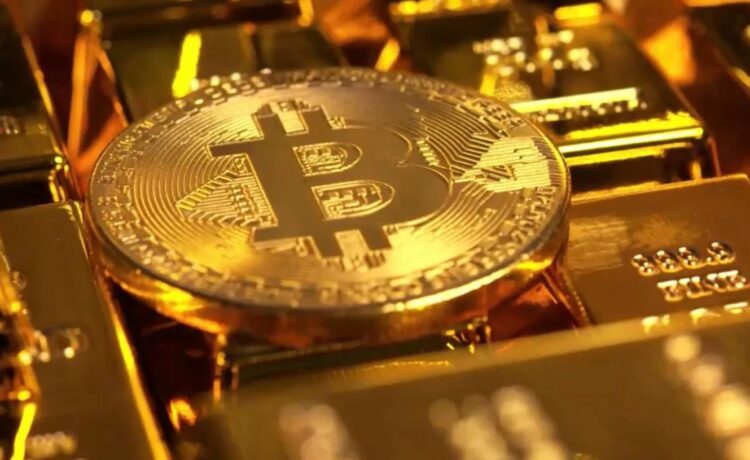The Southeast Asia region is renowned for having one of the largest cryptocurrency industries globally, marked by substantial trading volumes across a variety of digital assets. One such asset is Bitcoin Gold, which, despite its name, is unrelated to the actual metal.
Key takeaways
- 📈 Bitcoin Gold (BTG) Creation Bitcoin Gold (BTG) was created in 2017 as a response to the centralization of Bitcoin. It aimed to be more decentralized by allowing regular people to mine it using graphic processing units (GPUs).
- Statista reported that the cryptocurrency market in the SEA region will generate a profit of US$4.2 billion by the end of 2024.
- One of the main cryptocurrencies dominating investments in countries like South Korea, among others, is known as Bitcoin Gold or BTG.
Different sources such as Chainalysis and Statista have confirmed the rapid growth of the cryptocurrency market in the SEA region.
Statista reported that the cryptocurrency market will generate a profit of US$4.2 billion by the end of 2024, with a user penetration of 12.80% in 2024 and expected to reach 14.86% by 2028.
Within the global cryptocurrency adoption ranking by Chainalysis, countries like Vietnam and Thailand are at the forefront of cryptocurrency adoption.
One of the main cryptocurrencies dominating investments in countries like South Korea, among others, is known as Bitcoin Gold or BTG.
However, the cryptocurrency Bitcoin Gold, which claims to be an “improved” version of bitcoin, has not gained the same level of popularity as its predecessor. This is evident in its market price, which has consistently remained around $20 since its inception. Although it reached a peak of $140 in May 2021, it experienced a significant decline and hit a new record low of $10 in June 2023. Currently, Bitcoin Gold has stabilized around $25.
Bitcoin Gold (BTG) Basis
Bitcoin Gold (BTG) was introduced in 2017 following a hard fork from the original Bitcoin blockchain. This cryptocurrency was developed to decentralize the Bitcoin network by adopting an alternative mining algorithm known as Equihash.
Core Functionality
Bitcoin Gold operates as an open-source cryptocurrency utilizing a proof-of-work (PoW) consensus mechanism. It enables transactions without the need for intermediaries such as financial institutions, thereby fostering a more decentralized financial ecosystem.
Use Cases
Democratizing Mining
The primary goal of Bitcoin Gold is to democratize the mining process by introducing a new proof-of-work algorithm. This new algorithm was developed to address the scalability issues that Bitcoin faces.
Advanced Scaling Technologies
Bitcoin Gold has also implemented features from Bitcoin, such as Segregated Witness (SegWit), which enables advanced scaling technologies like the Lightning Network.
Bitcoin Gold (BTG) is listed and tradable on several top-tier exchanges, including Upbit, Bithumb, Gate.io, and Bybit, among others.
Bitcoin Gold performance in the Asian markets
Bitcoin Gold (BTG) has experienced varied performance across South Korea and other Asian markets. In South Korea, BTG has seen significant trading activity, reflecting the country’s robust interest in cryptocurrencies. South Korea is known for its advanced technological infrastructure and high cryptocurrency adoption rates, making it a fertile ground for digital assets like Bitcoin Gold.
The cryptocurrency is actively traded on major South Korean exchanges such as Upbit and Bithumb, where it has maintained a stable presence.
In the broader Asian market, Bitcoin Gold has also garnered attention, particularly in countries like Japan and China. The cryptocurrency’s emphasis on decentralization and its GPU-friendly mining algorithm have made it appealing to a wider audience. In Japan, BTG is traded on several exchanges, and a steady increase in adoption has been seen. Similarly, in China, despite regulatory challenges, Bitcoin Gold has found a niche among miners and traders who appreciate its resistance to ASIC dominance.
Overall, Bitcoin Gold’s performance in South Korea and the broader Asian market highlights its potential as a decentralized alternative to Bitcoin. Its unique features, such as the Equihash algorithm and ASIC resistance, have contributed to its appeal and adoption in these regions. While it may not have the same market dominance as Bitcoin, BTG’s focus on inclusivity and decentralization continues to attract a dedicated user base in Asia.
Key Differences Between Bitcoin and Bitcoin Gold
Mining Algorithm
Bitcoin utilizes the SHA-256 algorithm, which is optimized for specialized hardware known as ASICs. This often results in a concentration of mining power among those who can afford such equipment.
Conversely, Bitcoin Gold employs the Equihash algorithm, designed to be more GPU-friendly. This approach encourages broader participation in the mining process and mitigates the dominance of ASICs, promoting a more decentralized mining environment.
Decentralization
Bitcoin Gold’s primary objective is to re-decentralize the mining process. By enabling more individuals to participate in mining, BTG aims to reduce the influence of a few powerful miners.
In contrast, the Bitcoin ecosystem is often dominated by large mining pools, raising concerns about centralization and the potential for a few entities to exert significant control over the network.
ASIC Resistance
Bitcoin Gold was specifically designed to resist ASICs. The Equihash algorithm ensures a more equitable distribution of mining rewards, making it accessible to a wider range of participants. Bitcoin, on the other hand, is vulnerable to ASIC dominance due to its reliance on the SHA-256 algorithm.
Market Position
Bitcoin is widely regarded as one of the most dominant and recognized cryptocurrencies, enjoying broad acceptance and recognition across various sectors.
Bitcoin Gold, however, is considered a smaller player in the cryptocurrency market. Its focus is on promoting decentralization and inclusivity within the mining community.
Bitcoin Gold represents an effort to create a more decentralized and inclusive cryptocurrency ecosystem. By adopting the Equihash algorithm and resisting ASIC dominance, BTG aims to democratize the mining process and address some of the centralization concerns associated with Bitcoin. While it may not have the same market dominance as Bitcoin, Bitcoin Gold’s focus on decentralization and technological innovation makes it a noteworthy player in the cryptocurrency landscape.










